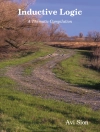Reflexivity – the critical examination of how we see the world – is integral to good research practice. From this state-of-the-art, accessible tour of its history and contemporary relevance, readers will learn of its importance to social research and to society generally. The text introduces a host of influential thinkers and their key ideas on reflexivity, and incorporates examples from a range of disciplines and research settings. Drawing on the authors’ extensive experience of real research settings, this book:
- Pinpoints the importance of reflexivity in social research
- Demonstrates its relevance to everyday life
- Firmly locates the concept in the history of ideas
- Explores key questions about the bases of knowledge and understanding
- Presents key thinkers, concepts and issues in easy-to-understand learning boxes
The result is a book that provides students and researchers in the social sciences with the knowledge and understanding necessary not only to examine the role of reflexivity in contemporary life, but to apply it in their own research practice.
Innehållsförteckning
Introduction
What is reflexivity?
The structure of the book
The reflexive difference
Chapter 1: Thought and Knowledge in the History of Ideas
Introduction
In search of certainty
Context matters
Enduring concepts: reason and scepticism return
Summary: reflexivity rooted
Chapter 2: Will, Interpretation and Being
Introduction
The will and representation
Facts, values and interpretations
Interpretation and being
Summary: reflexivity matters
Chapter 3: Pragmatism, Practice and Language
Introduction
Thought, action and the self
Thought, action and other minds
Language, meaning and everyday speech
Summary: reflexivity embedded
Chapter 4: Critique and Transformation
Introduction
Critical theory
Recovering the promise of reason
Critiquing critique
Summary: Reflexive relations
Chapter 5: Power and Action
Introduction
Power and the subject
A Realpolitik of reason
Standpoints and difference
Summary: Reflexive limits
Chapter 6: The Dynamics of Science in Society
Introduction
Co-producing society
′New′ modes of knowledge production
Co-producing research
Summary: Reflexivity centred
Chapter 7: Reflexive Practice
Introduction
The work of making context
The context of making work
Reflexive research design
Summary: Reflexive messes
Chapter 8: Reflexivity Realised
Introduction
Who am I?
How do I relate to others?
Why and how might I practice?
Final words
Om författaren
Professor Beth Perry is Professorial Fellow in the Urban Institute, University of Sheffield. Beth joined the Urban Institute in September 2016, following her appointment as a Professorial Fellow in the Faculty of Social Sciences. Since 2010 she has been the UK Programme Lead for the Mistra Urban Futures Centre, with headquarters in Gothenburg, Sweden and sits on the International Board. Beth’s research focuses on critically interrogating and developing pathways to more just sustainable urban futures. She focusses on urban governance, transformation and the roles of universities, with an emphasis on socio-environmental and socio-cultural transitions. She has written widely on these issues and is currently working with Prof Tim May at the Sheffield Methods Institute on two co-authored monographs on reflexive social scientific knowledge production and the changing relationships between cities and knowledge. She is working with Tim on two major ESRC grants as well as the delivery of an international programme of work on Realising Just Cities. Jam and Justice: Co-producing Urban Governance for Social Innovation is a three-year project funded by the ESRC Urban Transformations programme, with partners at the Greater Manchester Centre for Voluntary Organisation and the Universities of Manchester and Birmingham. Whose Knowledge Matters? Competing and Contesting Knowledge Claims in 21st Century Cities is a collaboration between the University of Sheffield and the University of Twente in the Netherlands funded by the Open Research Area initiative and focussed on citizen knowledges in sustainable urban development projects. Beth leads a team of researchers at the Urban Institute working across these projects.












